The views expressed in our content reflect individual perspectives and do not represent the authoritative views of the Baha'i Faith.
Have you ever heard of Louis Gregory? No? Well, then, allow me to introduce you to this gentleman, whose name and contributions should be known and hailed.
Louis Gregory was among the first African-Americans in the South to be allowed by law to receive an education. He first attended public schools and then missionary-run private educational institutions. Next Gregory graduated from Avery Normal Institute, the first college preparatory school for Blacks in Charleston. He went on to earn his Bachelor’s degree from Fisk University in Nashville, Tennessee.
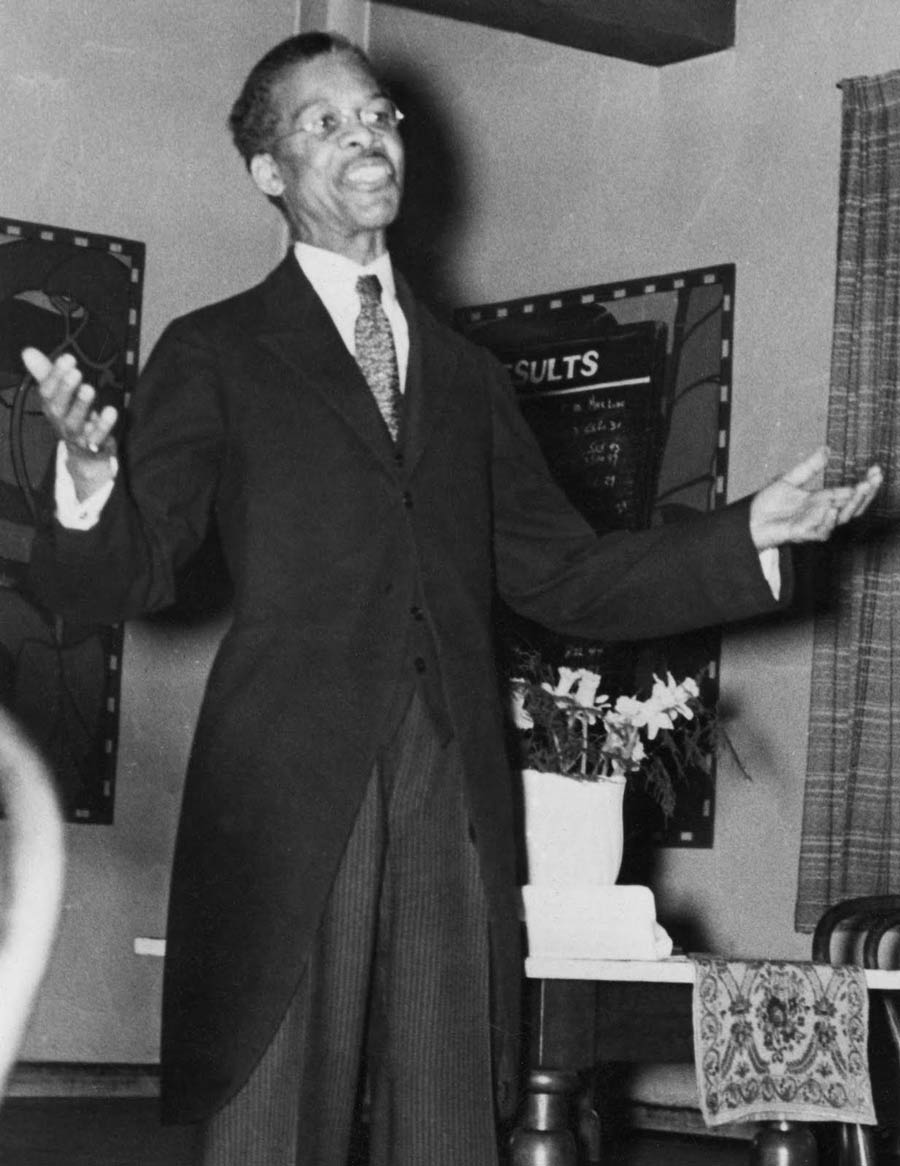
Louis Gregory
One of the 20 graduates from Howard Law School’s class of 1902, Gregory was chosen to give their commencement address. In his talk, “The Growth of Peace Laws,” he focused on disarmament and international peace initiatives. Gregory was admitted to the bar of the District of Columbia in October 1902, and the bar of the United States Supreme Court in March 1907.
These remarkable accomplishments belie his humble beginnings. Born Louis George in 1874 in Charleston, South Carolina to parents who received their freedom from slavery at the close of America’s Civil War, he lost his father, Ebenezer George, to tuberculosis while he was still a toddler. The family struggled, living in poverty until his mother, Mary Elizabeth, remarried in 1881. In less than ten years illnesses took both his brother and mother. His mother’s legacy to Louis was her love of education. Fortunately, his step-father, George Gregory, raised him as though he were his own son. Louis took his surname, becoming Louis George Gregory.
After he became an attorney, Louis interrupted his law practice with a stint in government service at the Department of the Treasury, where he received several promotions prior to returning full-time to private practice. He became committed to the eradication of racial discrimination, and advocated for civil rights many decades before the term turned into a national movement.
Though he came from a deeply religious family, he’d been disillusioned by religion and was initially uninterested when a white, Southern co-worker at the Treasury Department suggested Gregory look into the Baha’i Faith. Once he decided to check it out and see just what this religion taught, he soon began attending meetings on a regular basis and experienced firsthand the friendship of white people who were free of racial prejudice—people who, as we say today, were “woke” or “walked the talk.”
Not all of the Baha’is in the United States were able to do this back then. They all brought with them the baggage of their upbringing and their culture. So one of the first things Gregory did after embracing the Baha’i Faith was to bring front and center the Faith’s teachings on the oneness of the human family to his fellow Baha’is. His efforts were fortified by knowing this was what was expected of him by none other than the head of the Faith at that time, Abdu’l-Baha, who wrote to Gregory, saying:
I hope that thou mayest become … the means whereby the white and colored people shall close their eyes to racial differences and behold the reality of humanity. … so that like unto a candle thou mayest be enkindled in the world of humanity, and like unto a star thou mayest shine and gleam from the horizon of Reality and become the cause of the guidance of both races. – Star of the West, Volume 7, p. 103.
The first African-American specifically invited to visit Abdu’l-Baha, Louis recalled, “Abdu’l-Baha said many wonderful things during my brief contact with him … which lasted less than a fortnight. But more than anything else his discourse was about the American race problem.” He told Gregory to continue to “Work for unity and harmony between the races.”
That was exactly what Gregory continued to do. Undaunted by any obstacles he found in his path, he found a way around them and continued forward. The Baha’i Encyclopedia article on Mr. Gregory says:
In the South, Gregory often attempted to overcome racial barriers, directly and indirectly. He spoke to racially mixed audiences on a number of occasions and at times to white groups, including the student bodies of white colleges. He once shared a platform with a grand cyclops of the Ku Klux Klan. Simply by associating with white Baha’is, especially women, he risked arrest or even lynching; yet he was undeterred.
During one six-week trip through the southern states in 1916, around fifteen thousand people came to hear him speak. He became so committed to this work that he gave up his law practice in order to devote himself to it fulltime.
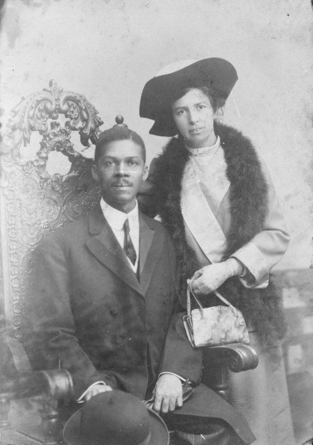
Louis and Louisa Gregory
Gregory and his wife, Louisa—who were the first interracial married couple among the Baha’is—sold their home in order to finance his travels, most of which he made without her since he was teaching in the still segregated South where in many places marriage between the races was illegal. When that money ran out, he continued, traveling in the most difficult, humbling and at times degrading circumstances. But he never gave up, no matter how dire his situation became.
During the years of World War II he concentrated his efforts by speaking on college campuses, bringing the concept of racial unity to the young, among whom would be the next generation of leaders and policy makers—but most importantly, those who, as parents-to-be, could teach the healing Baha’i concepts of racial unity to their own children.
Within the Baha’i Faith, Gregory served on many administrative institutions, often as the only non-white member. He helped open the door to many more such opportunities for minorities, which is as it should be according to Baha’i administrative principles. Indeed, if during an election for one of the Baha’i administrative bodies, two individuals receive the same number of votes:
… where it is obvious that one of the persons involved represents a minority, that person should be accorded the priority without question. – From a letter of the Universal House of Justice to the National Spiritual Assembly of the United States, January 25, 1967
I’m sure Mr. Gregory would have been delighted to hear someone at an International Baha’i Convention refer to the Spiritual Assembly of the Baha’is of the United States as the “prettiest” of all the National Assemblies present. The comment was due to its being the least homogeneous, having several different races and ethnic backgrounds among its members.
Gregory and Louisa, against all odds and with the encouragement of Abdu’l-Baha, set an example for all of us in letting our faith in God and his Will guide our steps. If we have faith, we can do as Baha’u’llah encouraged:
Thou seest the hearts are filled with hate … When the swords flash, go forward! When the shafts fly, press onward! – The Fire Tablet, Baha’i Prayers, pp. 218-219.


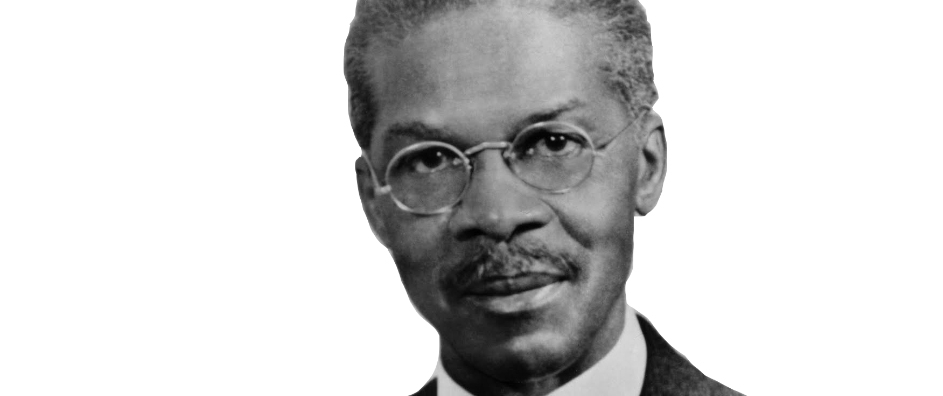

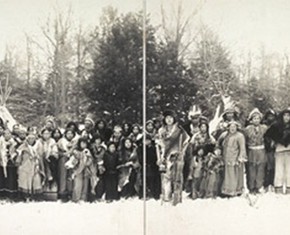
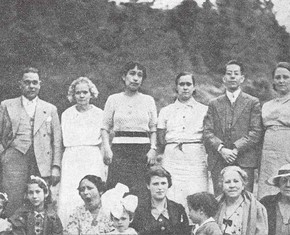










Comments
Sign in or create an account
Continue with Googleor